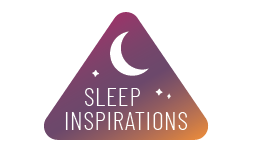Sleep Disorders
Sleep Disorders Overview
DO YOU HAVE SLEEP PROBLEMS?
The symptoms of sleep disorders vary between people in
type and severity. Some sleep disorders cause people to
have trouble sleeping at night. Others make people feel
drowsy all day even though they slept all night.
While we usually recognize when we have had a bad
night’s sleep, sometimes it is not so clear. For many, sleep
problems develop slowly and gradually over years and
may seem like a normal part of life. Others are very
aware of their problem and experience symptoms which
affect their quality of life. Additionally there people who
would not consider their symptom(s) to be a problem
with sleep. For example, a person might feel that he/she
sleeps well but is still sleepy during the day.
COMMON SLEEP DISORDER SYMPTOMS
-
Difficulty falling asleep
-
Waking frequently after falling asleep
-
Waking during sleep and not being able to fall back to sleep
-
Snoring loudly
-
Awaking to find yourself gasping for breath
-
Excessive sleepiness during the day
-
Moving during your sleep
-
Hitting or kicking your bedmate
-
Walking or talking in your sleep
-
Sleeping at the wrong times
If you experience any of these symptoms they may be
caused by a sleep disorder. There are many identified
sleep disorders. Below we provide a brief description of
several common sleep disorder diagnoses. Other pages
on this website are designed to give you more detailed
information about some common disorders.
ARE YOUR SLEEP PROBLEMS IMPORTANT?
Sleep problems vary in intensity from minimal to severe.
Problems with sleep can have both short-term and long-
term effects on a person. The effects or symptoms can
build up slowly and not be readily apparent. Long-term
effects may be personal and social, related to work,
school and family. More importantly, long-term effects
can be also be medical and lead to many chronic
debilitating medical conditions. If you or your family
suspect problems, it is a good idea to review them with a
professional.
SLEEP DISORDERS
Insomnia – Difficult falling asleep or staying asleep
One in three American adults has trouble falling asleep
at night. This condition affects people of all ages, has
many causes and can lead to irritability, drowsiness,
anxiety, or depression. Causes of insomnia include sleep
habits, emotional turmoil, anxiety, and other medical
conditions. Difficulty staying asleep is a form of
insomnia.
For more information about insomnia, review our Insomnia page.
Snoring
The sound of breathing during sleep can be as faint as a
snowfall or as loud as thunder. Snoring is most often a
sign of significant breathing problems while sleeping.
Breathing problems while asleep
A major sleep problem facing many Americans is sleep
apnea. This condition occurs in approximately three to
five percent of children and twenty five percent of
adults. There are two types of apnea: obstructive and
central. Obstructive sleep apnea is the most common
type. It can be described as choking in your sleep.
Central sleep apnea can be described as holding your
breath while you sleep.
For more detailed information about apnea, visit our Sleep Apnea page.
Moving while asleep
Changing positions while you are sleeping is normal.
Kicking, walking, talking, thrashing, and other
movements are not. Many movement disorders have
been identified. Common disorders are Restless Leg
Syndrome, Periodic Limb Movement Disorder and REM
Behavior Disorder. For more information about these
Excessive daytime sleepiness
The normal amount of sleep required by adults ranges is
approximately 8 hours per night. Some people require
more, some less. If after sleeping a normal amount of
time a person is still sleepy during the day, they may
have a sleep disorder. The majority of people who are
excessively sleepy during the day, after sleeping seven or
more hours at night, have a problem with the quality of
their sleep. Conditions such as apnea and movement
disorders can disrupt sleep and make it non-refreshing.
For those individuals who do experience normal, quality
sleep and sleep a normal amount of time but are still
sleepy during the day, other reasons may be the cause.
Sleep disorders, such as narcolepsy, brain injuries,
strokes, medications and other medical conditions must
be considered. The only way to determine your quality of
sleep is to undergo a sleep study (polysomnogram). Your
physician should investigate excessive daytime
sleepiness and a thorough sleep evaluation should be
considered. For additional information see our pages on
Updated June 2022
